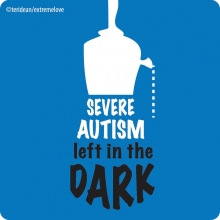Recent Posts
The sleeve is quick money maker for surgeons. Then they make double fees from you when they revise to RNY. It is a lot of misery to put yourself through. Get RNY and skip VSG.

Real life begins where your comfort zone ends
No surgeon worth his salt should be giving you a VSG. If you already have GERD, you need an RNY.
If your surgeon doesn't tell you this, you need to RUN to another because you are destined for a revision, which insurance may not pay for, after a horrible year or two.
Proud Feminist, Atheist, LGBT friend, and Democratic Socialist

If I had acid issues before surgery, I would never have considered VSG. A great many people who hever had reflux a day in their lives came down with debilitating gerd after the sleeve. Many end up needing to revise to RNY.
Do a search and you will turn up a lot of instances of acid after VSG.
6'3" tall, male.
Highest weight was 475. RNY on 08/21/12. Current weight: 198.
M1 -24; M2 -21; M3 -19; M4 -21; M5 -13; M6 -21; M7 -10; M8 -16; M9 -10; M10 -8; M11 -6; M12 -5.
You should search as there are many threads that discuss having to get RnY after VSG due to worsening acid problems. Did you tell the doctor you had this issue as he evaluated you? Most won't do VSG on patients with acid problems pre-surgery? Mine gave me the option, but really warned me against. I had the option to switch right up to an hour before surgery and ultimately went with RnY because of his concerns. From what I've seen, it can get seriously bad afterwards. Please do a google search on this topic with Obesity Help in the search bar as well. Your eyes will be opened. Good luck.
HW 510 / SW 424/ GW 175 (stretch goal to get 10 under) / CW 160 (I'm near the charts ideal weight - wonder if I can stay here)
RNY November 2016
PS: L/R arm skin removal; belt panniculectomy - April, 2019
I had heartburn before surgery and immediately after surgery I got Gerd. It is controlled by meds now and is much better then it was 2 years ago. I have heard it gets better with weight loss but most Drs. don't perform this surgery if you already have stomach acid and are on meds for it .
had it 9 years ago; the first six months are a roller coaster, and you lose a lot of weight. As you get years out, life is...really normal. Eventually you can eat like a normal person again (which was one of my hopes and fears early on). I eat less than I did, and more slowly, but still normal.
I can gain weight if I snack (trying to get back down now, which is why I'm back on the forum, a daily reminder), and can lose weight far easier than before the surgery (and I'm now in my mid 40s). I still take B12 regularly, and need vitamin D suppliments, but otherwise perfectly fine vitamin wise. I do get heartburn still, but that's why god created tums and prilosec.
Overall, 10 years out, really glad I did it. I would probably weigh at least 100 pounds more than I do now without it, and I am healthy and happy. Having had friends who did bypass, sleeve is much better.
They can call it an endoscopic sleeve, but there is no way they can perform a VSG endoscopically.
Aside from the misleading name, of what does the procedure consist?
6'3" tall, male.
Highest weight was 475. RNY on 08/21/12. Current weight: 198.
M1 -24; M2 -21; M3 -19; M4 -21; M5 -13; M6 -21; M7 -10; M8 -16; M9 -10; M10 -8; M11 -6; M12 -5.
I am scheduled to have surgery in a couple of weeks and I'm a little concerned about my stomach acid I have now and how that will affect me post op. I take omeprazole daily but sometimes I still have problems with heartburn. Has anyone had this problem and if so was it better or worse after surgery?
I've been thinking about weight loss surgery since 2008. I'm just fed up with the up and down roller coaster so i was thinking of moving forward with the Sleeve.
Does anyone e know what insurance will cover it? I have Ambetter and they do not cover it. Help?
Suggestions?
F.L.Y.







